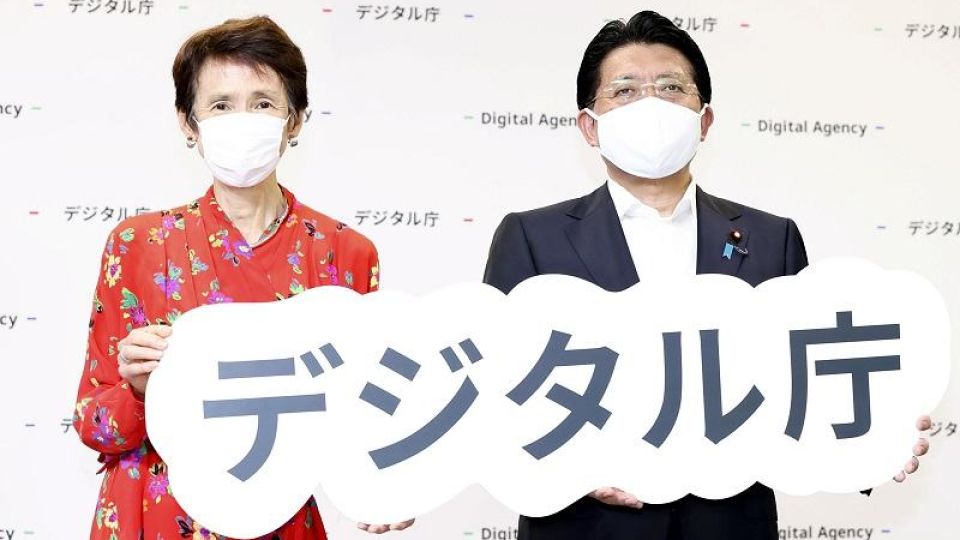September 1, 2022
TOKYO – Thursday marks one year since the Digital Agency was launched. While the agency has developed apps that tap into the speed of work seen in the private sector, its role as a control tower for the digitization of government administrative work has stalled due to resistance from other ministries and agencies. The agency now must see whether it can turn things around.
The Digital Agency was established by the Cabinet of then Prime Minister Yoshihide Suga in order to make up for a delay in digitizing administrative work, as exposed by the coronavirus pandemic. About 200 of the agency’s initial 600 staff members were from private sector fields such as the IT industry.
The hiring of people from the private sector is aimed at bringing in technical knowledge that government bodies lack. The government released its COVID-19 vaccination certificate app in December, three months after the agency’s launch, and the number of downloads totaled 7.5 million at the end of July. Problems with the app are continually being fixed, and some have praised the app for its user-friendliness when traveling overseas.
Numerous challenges
On the other hand, the agency has some issues to address in its effort to serve as the digital command post. To promote digitization by eliminating divided administrative systems, the agency has been given authority to make recommendations to other ministries and agencies, as well as to collectively allocate budgets related to the development of their systems. However, the agency has often encountered resistance.
For example, the Justice Ministry tried to revise a system in order to stop the addresses of company representatives being disclosed online, in regard to a browsing service for corporate registration information. This move was seen as a step backward from the government’s efforts to bring administrative services online, leading the Digital Agency to consider exercising its right to make recommendations to government bodies. Following discussions, the revision of the system, which had been planned to take effect Thursday, was scrapped at the last minute.
Local governments voiced opposition to a measure to shift administrative systems to the cloud by fiscal 2025, raising questions over its feasibility. The agency has since held careful consultations with local governments, while continuing with the work. As a result, the formulation of basic plans for the measure is running about six months behind the initial schedule.
The agency has also found it difficult to achieve the target for My Number identification cards, which is the key to digitizing government administrative services. The central government aims to issue My Number cards to almost everyone in the country by the end of fiscal 2022, but the percentage of people who have been issued cards has not yet reached 50%.
Staff shortage, huge workload
Although the number of staff members at the agency has increased by about 150 over the past year alone due to the high volume of work, there is still a concerning labor shortage. Some people have pointed to the lack of communication between bureaucrats and those from the private sector, who are bewildered by the bureaucratic culture of behind-the-scenes coordination.
Prime Minister Fumio Kishida appointed former Foreign Minister Taro Kono as the digital minister in a Cabinet reshuffle on Aug. 10. Although some people are concerned about his lack of knowledge of digital matters, Kono has a reputation for his ability to break through and communicate with the public.
“He might be able to increase the presence of the agency and solidify its foothold within the government,” a senior official at the agency said.
A senior official at an economy-related government body expressed sympathy, saying, “The Digital Agency is shouldering the entire burden of Kasumigaseki, which has slacked off on digitization.”
Economic critic Keiichi Kaya said: “Unless the digital minister is influential within the Cabinet, ministries and agencies won’t follow the reforms. Support from the prime minister is also needed.”
Kono is evidently being tested as commander of the government’s digital strategy, as is the Kishida administration on how serious it is about digital reform.

